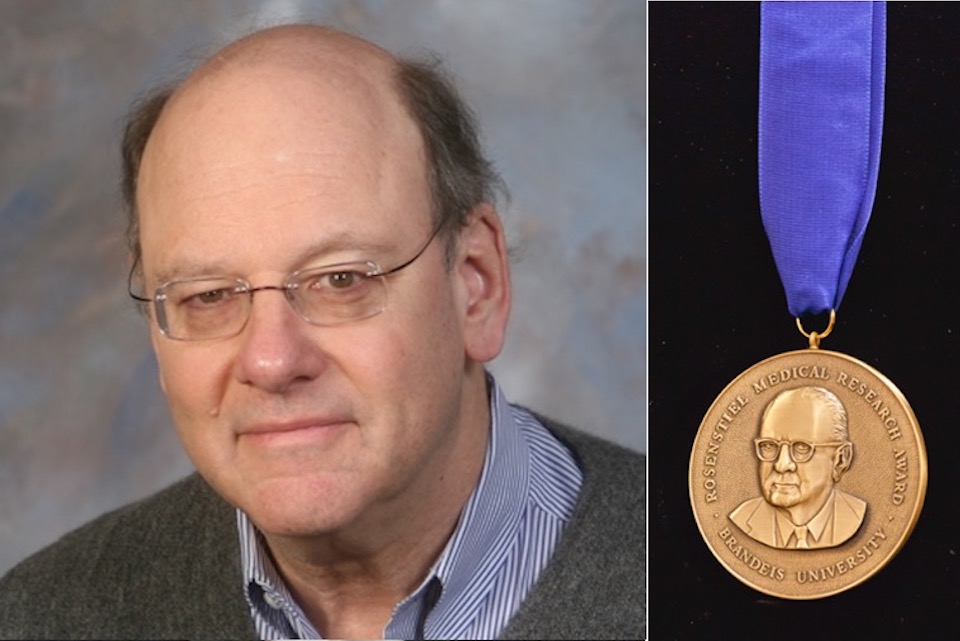51st Rosenstiel Award for Distinguished Work in Basic Medical Research awarded to Professor Robert H. Singer

Robert H. Singer
The 51st Lewis S. Rosenstiel Award for Distinguished Work in Basic Medical Research has been awarded to Robert H. Singer for his key role in revealing the dynamics of gene expression using high-resolution imaging.
Singer is the Harold and Muriel Block Chair in Anatomy and Structural Biology at Albert Einstein College of Medicine, in New York City, and professor in the departments of anatomy and structural biology, neuroscience, and cell biology and co-director of the Gruss Lipper Biophotonics Center.
Singer is honored for his development of highly sensitive and quantitative methods to explore the regulation of gene expression. His work has enabled the visualization and quantitative characterization of gene expression at single molecule resolution and to follow the subcellular choreography of diverse messenger RNAs “from cradle to grave” — from its transcription to its translation to its degradation.
These methods include the fluorescent version of in situ hybridization (FISH) and then its dramatic improvement: single molecule FISH (smFISH) to detect and count individual RNA molecules in particular cell types.
The widely used stem-loop technique for tracking mRNA in living cells has revealed the sites of their transcription on chromosomes, their processing in the nucleus, and their export and localization in the cytoplasm where they are translated into protein. His work has shown that some messages carry localization signals to specify in which subcellular compartment their translation occurs, for example in terminals of axons and dendrites of nerve cells, far from the nucleus. In short, Singer’s development of quantitative in situ transcriptomics has been of central importance to understanding many aspects of cell and developmental biology.
Singer will present an award lecture at Brandeis on April 6, 2022.
The Rosenstiel Award has had a distinguished record of identifying and honoring pioneering scientists who subsequently have been honored with the Lasker and Nobel Prizes. In 2020, the Rosenstiel Award was conferred on Katalin Karikó and Drew Weismann, ’81, MA ’81, P’15 for their pioneering work in the development of RNA vaccines. In 2019, David Julius and Ardem Patapoutian were honored for their identification and characterization of ion channels that enable the perception of touch, temperature and pain. Julius and Patapoutian are the 2021 Nobel laureates in Physiology and Medicine. In 2018, the Rosenstiel award was conferred on professor Stephen C. Harrison, for his elucidation of protein structures using x-ray crystallography. In 2017 professor Titia de Lange was named for her pioneering work on how cells preserve the integrity of their chromosomes. In 2016, professor Susan Lindquist was cited for her work on the association of protein aggregation and neurological disease. In 2015, professor Yoshinori Ohsumi was the recipient, for his description of protein degradation through the process of autophagy. Ohsumi was awarded the Nobel Prize in 2016. Thirty-eight of 92 Rosenstiel Award winners have subsequently been awarded the Nobel Prize in Medicine or Physiology or in Chemistry.
A full list of awardees can be found on the Rosenstiel Award website.
Categories: Alumni, Research, Science and Technology





